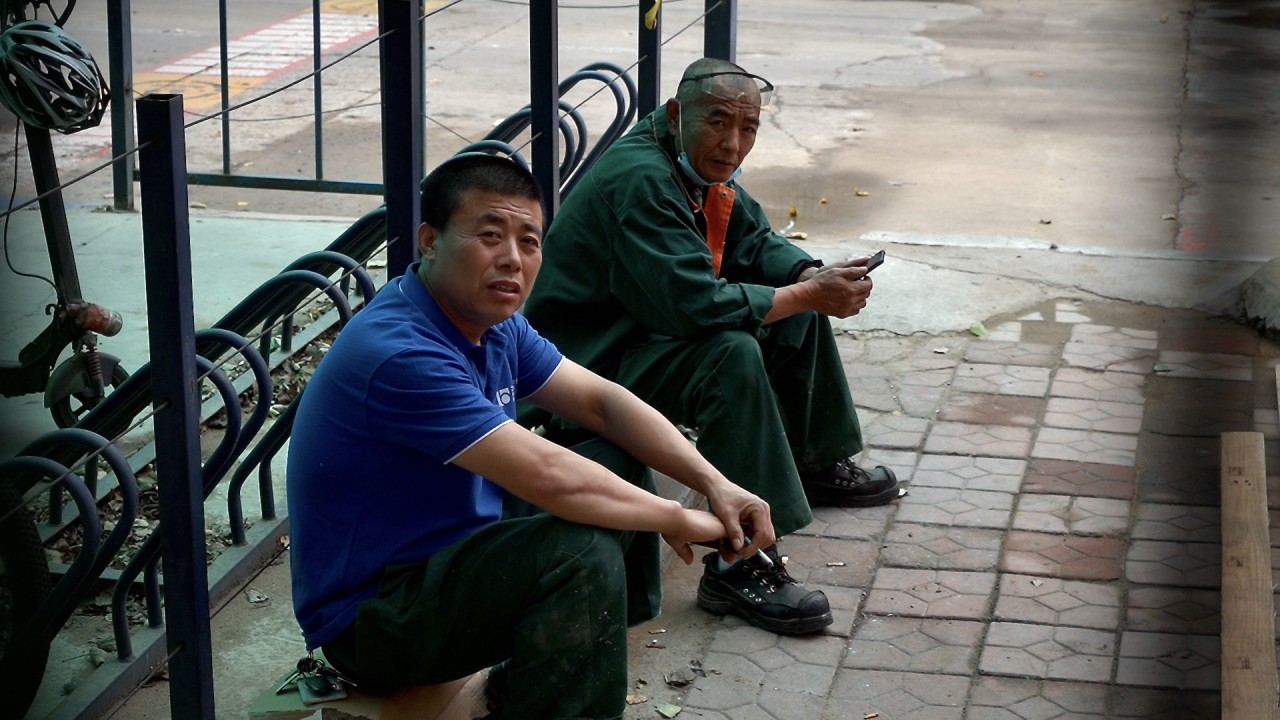
Evergrande crisis and China’s economic risks add to Hong Kong commercial property market’s wall of worry
- Mainland firms have been a key source of office expansion demand in Hong Kong, and Beijing’s regulatory clampdown threatens to put a damper on this
- Nevertheless, what is striking is how activity in the occupier and investment markets has picked up since the end of last year in the face of persistent challenges
Just when the recovery in Hong Kong’s battered commercial real estate sector was gathering momentum, another menace threatens to undermine confidence in the occupier and investment markets.
China’s economy has rapidly become a key source of anxiety in financial markets, not because of genuine fears that Evergrande’s woes will spark a crisis on the scale of the disaster that followed the 2008 collapse of Lehman Brothers, but because the risks to growth are multiplying.
The fierceness of Beijing’s regulatory interventions and the precariousness of the nation’s property-driven growth model have unnerved global investors, just when the US Federal Reserve and other leading central banks are about to start withdrawing stimulus.
For Hong Kong – the commercial real estate market in the Asia-Pacific whose performance and outlook are most reliant on what happens in China – the heightened risks on the mainland are the latest threat in a succession of headwinds that are weighing on leasing and investment activity.
The marked deterioration in economic conditions in China comes at a critical time for the city’s commercial property market. Despite a deceleration in the pace of the decline in office rents, Hong Kong will still be one of the region’s worst-performing markets this year, with grade A office rental values expected to drop a further 6 to 8 per cent, in contrast to increases in Singapore and Seoul, data from CBRE shows.
Leasing activity is being driven mostly by relocations and corporate downsizing, as opposed to new demand and expansions. This explains why the net absorption of office space in Hong Kong continues to contract, with occupancy expected to have shrunk last quarter for the eighth straight quarter.
Mainland Chinese firms, moreover, have been a key source of expansion demand during the pandemic. Chinese financial institutions have shown a greater willingness to take up space in premium buildings in Central, capitalising on the plunge in rents in the district, which at the end of June were down 26.4 per cent from their peak in the second quarter of 2019, data from Savills shows.
In a sign of the importance of mainland demand in Hong Kong’s office market, a report published by Colliers last month noted that Chinese companies – which account for 16 per cent of new lettings in the city’s central business district this year, down from an average of 26 per cent in 2015-17 – could take an extra 4 million square feet of space by 2025, the bulk of it in the central business district.
Yet, Beijing’s regulatory interventions threaten to put a damper on one of the drivers of leasing demand from Chinese firms. Hong Kong’s stock market just suffered its worst quarter for new share offerings – which help spur demand for office space from ancillary finance and business services – since the pandemic began. The proceeds from initial public offerings in Seoul last quarter were 73 per cent higher than in Hong Kong, according to Bloomberg.
Still, it is important not to overestimate the risks to Hong Kong’s commercial property sector, particularly in a market that has already suffered multiple shocks and where expectations were low to begin with.
Nelson Wong, head of research for Greater China at JLL, said that Hong Kong has proved quite resilient, all things considered.
Indeed, in certain segments of the commercial property market, the recovery has proved much stronger than anticipated.
In the hard-hit retail sector, high street rents rose in the second quarter on a quarter-on-quarter basis for the first time since 2018 amid a recovery in leasing demand, led by food and beverage retailers. The investment market, moreover, has rebounded sharply, led by a string of transactions in the industrial sector, helped by the government’s industrial revitalisation scheme.
Furthermore, persistent falls in rents and net take-up in the office market mask a flight to quality that has benefited best-in-class buildings in both core and decentralised locations whose attributes meet occupiers’ requirements in a post-pandemic world.
The mounting threats to China’s economy are another row of bricks in the wall of worry that Hong Kong’s commercial real estate sector must scale.
That the recovery has already taken hold despite the numerous headwinds is an achievement in itself.
Nicholas Spiro is a partner at Lauressa Advisory


